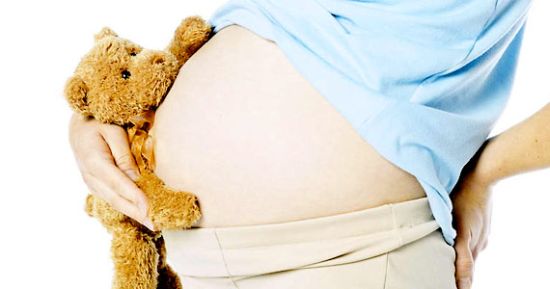Your partner and you have decided on having a baby. Your partner is very enthusiastic about it but you are unsure. This is because you are unaware of the facts associated with pregnancy. How can you conceive? What is the biological process inside your body? And many more such questions. All these queries can be answered by understanding the ovulation and fertility cycle. This would give a brief idea of what affects you while wanting to get pregnant.
1. Your menstrual cycle
Your monthly cycle starts with the onset of your periods. The first 5 days are when an earlier egg is being thrown out because of non-fertilization. Meanwhile, your ovaries are making another egg inside them with the help of hormones. Between the 7th and 11th day these same hormones will help make the inner layer of the uterus thick so that if fertilization occurs the uterus is ready to affix the egg inside it.
2. The ovulation process
Majority of women have a menstrual cycle of about 26-30 days. This also depends from women to women and some may even have 28-31 days of cycle. The process of ovulation of the egg usually takes place between the 11th and 21st days after the previous period’s tenure. Luteinizing hormone (LH), which is a brain hormone, is responsible for releasing the most ripened egg from either of the two ovaries in order to get fertilized. The cervical mucus plays the part of a medium through which the sperm can slip easily and reach the ovulated egg.
3. Timing does matter
Conception or fertilization can happen only when the right time comes. An ovulated egg will travel trough the fallopian tubes, which connect the ovaries and the uterus, and get ready to be fertilized. However, its age is only around 12-24 hours. The age of a sperm is about 3-4 days and survives inside the uterus. Hence with correct timing the egg and the sperm have to meet at the opening of the fallopian tubes and uterus. Only one egg is made by either of the ovaries every month; hence if a fertilization does not occur in a particular month, you need to wait an entire cycle of 26-30 days to conceive. When you know your ovulation dates, you can plan the intercourse likewise and hence get pregnant accurately.
4. Your most fertile days can be calculated
When planning to get pregnant, track your fertile days when you can have sex and hence get pregnant. For woman who has an exact 28 days of menstrual cycle can calculate like this:
a) Note down when you are expecting your next period to start.
b) Count backwards 14 days
c) Have sex around this date you have calculated.
d) This would either be the 12th, 14th, or 16th day of your menstrual cycle to put it simply.
e) Do not have sex every day that reduces chances of getting pregnant.
5. Body temperature can tell you about ovulation
Once the egg is given out, the follicle will release a hormone called progesterone. This hormone is responsible for thickening the inner lining of the uterus. When this hormone is released, the body will rise its temperature. You can note the temperature of your body with a thermometer every morning and check if it has risen. This can tell you about the ovulation period of your body.
6. Track your LH to know ovulation
The rise in LH will help the egg to be released from the ovaries, and this can be noted with the help of a kit. You can purchase this kit in medical stores and test your LH levels through samples of your urine. These kits will help you get the exact date of ovulation and hence you can plan your sex in order to get pregnant.
7. Last stage of menstrual cycle
In the last stage of your menstrual cycle two things may happen. Either the egg may get fertilized with the sperm inside the uterus or it may not. If it does get fertilized that means you have got pregnant and the walls of the uterus start to become thick. They are getting ready for the fertilized egg to get affixed, to continue the pregnancy. If the egg does not get fertilized it remains inside the uterus and after about 12-16 days will disintegrate and get thrown out along with the inner lining of the uterus along with some blood tissues. This is your periods time which may be 3-7 days long and then the menstrual cycle starts after that all over again.
8. Some foods to boost fertilization
Many foods help in increasing the fertility in woman. Fatty foods, fast food items with monounsaturated fats, ice creams, sugar, and many more such foods will help increase the fertility in women and can be consumed by woman wanting to get pregnant.
10. Watch your and your partner’s weight
Your partner and your weight can hamper the rate of fertilization. You need to watch the weight when you want to get pregnant and have a baby. Obese people will also not have healthy babies. Hence eating too much and increasing your weight will hamper your dreams of becoming a mother.




